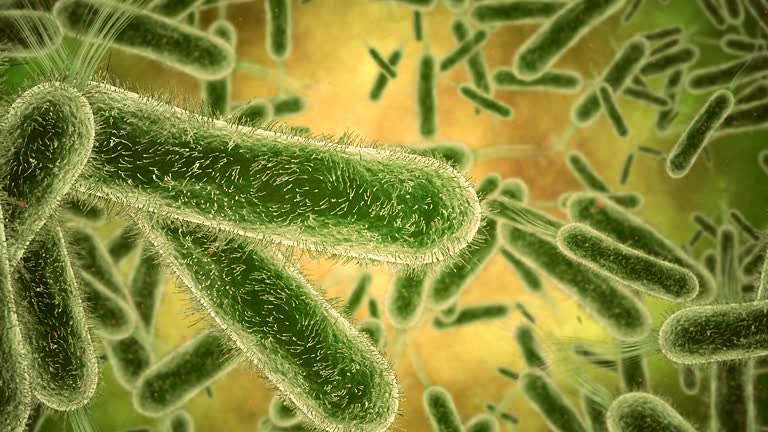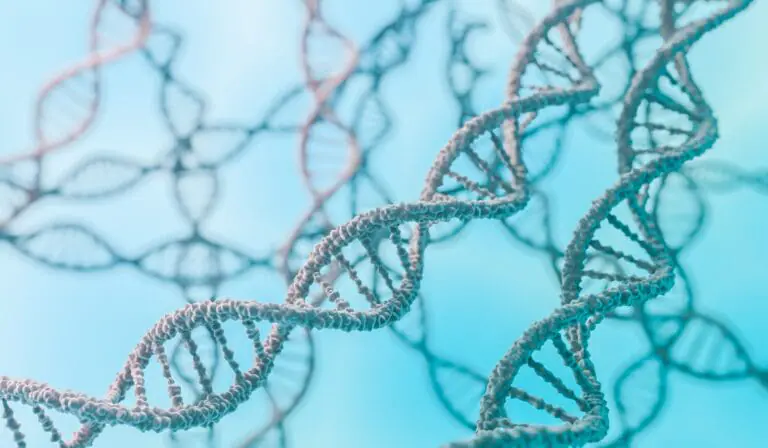The microbiome—the collection of trillions of microbes that live in and on our bodies—is often referred to as our “second genome,” a vast and intricate ecosystem that plays a pivotal role in shaping our health, mood, immune system, and much more. Hidden within the depths of our digestive systems, skin, and other organs, these tiny organisms are quietly working behind the scenes, influencing nearly every aspect of our well-being. While the term “microbiome” has recently gained significant attention in the fields of health, medicine, and science, its importance is still being uncovered.
In this exploration, we will dive deep into the mysterious world of the microbiome—what it is, how it works, and the astonishing ways it affects our health. From gut bacteria that affect digestion to microbes influencing our brain chemistry, we will uncover the true power these microbes wield over our bodies.
What is the Microbiome?
The human microbiome is a diverse community of microorganisms—bacteria, viruses, fungi, and single-celled organisms—living symbiotically within and on our bodies. Although these microbes are most densely populated in the gut, they are also found on our skin, in the respiratory tract, the mouth, and other mucosal surfaces. Together, these microbes weigh around three to five pounds, almost as much as our brain.
Each microbiome is unique to an individual, shaped by genetic factors, diet, environment, lifestyle, and even birth method (whether born via caesarean section or vaginally). In fact, your microbiome is more genetically diverse than your own genome. With an estimated 100 trillion microorganisms—outnumbering your body’s human cells 10 to 1—it’s clear that these microbes are not just passengers on a long ride; they are critical contributors to maintaining your health.
Microbes and the Gut: The Gateway to Good Health
One of the most vital components of the microbiome resides in the gut, where bacteria and other microorganisms engage in processes crucial for digestion, nutrient absorption, and overall metabolic health. The gut microbiome influences how we digest food, regulate blood sugar, and even produce vitamins like B12, essential for energy and brain function. Without these microbes, our ability to break down complex carbohydrates, proteins, and fats would be severely impaired.
But it’s not just about digestion. The gut microbiome is also intricately connected to the immune system. Studies have shown that the gut microbiota can regulate immune responses, enhancing or inhibiting the body’s ability to fight off infections. An imbalance in gut bacteria, known as dysbiosis, has been linked to a range of diseases, from inflammatory bowel diseases (like Crohn’s and ulcerative colitis) to autoimmune disorders and allergies.
Moreover, emerging research suggests that the gut microbiome can communicate directly with the brain, forming the “gut-brain axis,” which influences mood, behavior, and mental health. This connection explains why conditions like anxiety, depression, and even autism spectrum disorders have been linked to the health of the gut microbiome.
Microbiome and Mental Health: A Brain-Gut Connection
One of the most groundbreaking areas of research into the microbiome involves its connection to mental health. The gut is often called the “second brain” because of the extensive network of neurons lining the digestive tract, sometimes called the enteric nervous system. This system communicates directly with the central nervous system via the vagus nerve, creating a two-way street between the brain and the gut.
The microbes residing in our gut have an impact on our brain chemistry, influencing the production of neurotransmitters like serotonin, dopamine, and GABA. For example, about 90% of the body’s serotonin—often dubbed the “feel-good” neurotransmitter—is produced in the gut. Changes in the gut microbiota can lead to changes in these chemicals, which can have profound effects on our mood, cognition, and mental health.
Researchers have also discovered that the microbiome can influence our stress responses. When the balance of gut bacteria is disrupted, the body’s ability to manage stress can be affected, potentially leading to mood disorders like anxiety and depression. Conversely, a balanced and healthy microbiome seems to protect the brain from the damaging effects of stress, suggesting that maintaining gut health could be a powerful tool in preventing or managing mental health issues.
Microbiome and the Immune System: Guardians of Our Health
Your immune system, tasked with protecting your body from harmful invaders like bacteria, viruses, and toxins, also relies heavily on the microbiome. The microbes within our bodies help train the immune system, teaching it how to distinguish between harmful and harmless substances. A well-balanced microbiome supports a robust immune response, while a dysregulated one can result in immune system dysfunction.
For instance, the microbiome plays a crucial role in protecting against pathogenic bacteria by outcompeting them for resources and producing antimicrobial substances. Some gut bacteria even help regulate the production of regulatory T cells, which prevent the immune system from attacking the body’s own tissues—an essential function for preventing autoimmune diseases.
On the flip side, when the balance of microbes in the gut is disrupted, it can contribute to chronic inflammation, a hallmark of many diseases, including arthritis, cardiovascular disease, and even cancer. Inflammatory bowel diseases, such as Crohn’s disease and ulcerative colitis, are direct examples of how an imbalanced microbiome can lead to immune system dysfunction and chronic inflammation.
Microbiome and Metabolism: Key to Weight and Energy Regulation
The composition of your microbiome can also influence how your body metabolizes food and stores fat, which is why it’s often linked to obesity and weight regulation. Certain gut bacteria are better at extracting energy from food, particularly from dietary fiber, and can impact how your body stores fat. In fact, studies have shown that people with obesity often have different gut microbiomes compared to those with normal weight.
Additionally, the microbiome may affect the way the body processes glucose, influencing insulin resistance, a key player in the development of type 2 diabetes. The microbes in your gut can regulate the production of molecules like short-chain fatty acids, which can influence insulin sensitivity and fat metabolism.
Interestingly, research has also shown that the microbiome can influence appetite regulation. Specific bacterial strains can produce signals that either stimulate or suppress hunger, potentially offering new avenues for controlling food intake and managing weight.
Microbiome and Skin: The First Line of Defense
The skin is another vital ecosystem for the microbiome, with bacteria and fungi colonizing its surface. The skin microbiome plays a crucial role in protecting us from external threats like pathogens, pollutants, and UV radiation. It also contributes to maintaining the skin’s pH and moisture balance, keeping it healthy and resistant to infections.
When the skin microbiome is disrupted, it can lead to a variety of skin conditions, including acne, eczema, psoriasis, and rosacea. A healthy balance of bacteria on the skin’s surface helps to keep pathogenic microorganisms at bay, while an imbalance can result in inflammation, infection, and other skin issues.
Recent studies have also shown a connection between the gut microbiome and skin health, with conditions like acne being linked to an unhealthy gut. The gut-skin axis, much like the gut-brain axis, suggests that the balance of microbes in the gut may influence the health of our skin, underscoring the importance of maintaining a balanced microbiome.
Diet and the Microbiome: Fueling the Microbial Community
What you eat plays a significant role in shaping your microbiome. A diet rich in fiber, prebiotics, and fermented foods supports a diverse and healthy microbial population, while a diet high in processed foods, sugars, and unhealthy fats can promote the growth of harmful bacteria. The diversity of the microbiome is key to its function—when the microbial community is diverse, it can respond more effectively to challenges and maintain balance.
Prebiotic foods—such as garlic, onions, bananas, and oats—provide food for beneficial gut bacteria, while probiotics, found in fermented foods like yogurt, kefir, sauerkraut, and kimchi, introduce beneficial microbes into the gut. A well-balanced diet that supports microbial health can contribute to better digestion, immune function, and mental well-being.
Interestingly, the modern Western diet, with its reliance on processed foods, antibiotics, and a lack of dietary fiber, has led to a decline in microbiome diversity. This decline has been linked to an increase in chronic diseases like obesity, diabetes, and inflammatory bowel diseases. By shifting to a more plant-based, whole-foods diet, individuals may be able to enhance their microbiome’s diversity and improve their overall health.
Microbiome and Antibiotics: A Double-Edged Sword
Antibiotics, while life-saving in many situations, have a significant impact on the microbiome. These drugs kill bacteria indiscriminately, wiping out both harmful and beneficial microbes in the gut. This disruption can lead to a condition known as dysbiosis, which can result in digestive issues, weakened immunity, and even increased susceptibility to infections.
In some cases, the overuse or misuse of antibiotics has been linked to conditions like antibiotic-resistant infections, inflammatory bowel diseases, and obesity. To protect the microbiome, it’s important to use antibiotics only when necessary and under the guidance of a healthcare professional. After an antibiotic course, consuming probiotic-rich foods or supplements may help restore the balance of the microbiome.
The Future of the Microbiome: Therapeutic Potential
The microbiome is an exciting frontier in medical research, offering potential new avenues for treatments and therapies. From personalized medicine tailored to an individual’s unique microbiome to fecal microbiota transplants (FMT) for treating conditions like Clostridium difficile infection, the possibilities are vast.
Researchers are exploring ways to manipulate the microbiome to treat conditions like obesity, diabetes, autoimmune diseases, and even cancer. In the future, it’s possible that we could customize our microbiome for optimal health through diet, probiotics, or targeted therapies. As we continue to unlock the secrets of this hidden world, the microbiome may prove to be one of the most transformative areas of scientific discovery in the coming decades.
Conclusion
The microbiome is a hidden powerhouse within our bodies, influencing everything from digestion to mood, immune function to skin health. As science continues to uncover the vast network of microbes that coexist with us, we are learning just how critical these organisms are for maintaining our health and well-being. By nurturing a healthy microbiome through diet, lifestyle, and mindful use of antibiotics, we can unlock the potential for better health, increased longevity, and a more balanced life.
Understanding and supporting the microbiome may not just be the future of medicine; it could very well be the key to understanding and maintaining the delicate balance that keeps our bodies functioning at their best. The hidden powers of our microbiome are, indeed, profound.






